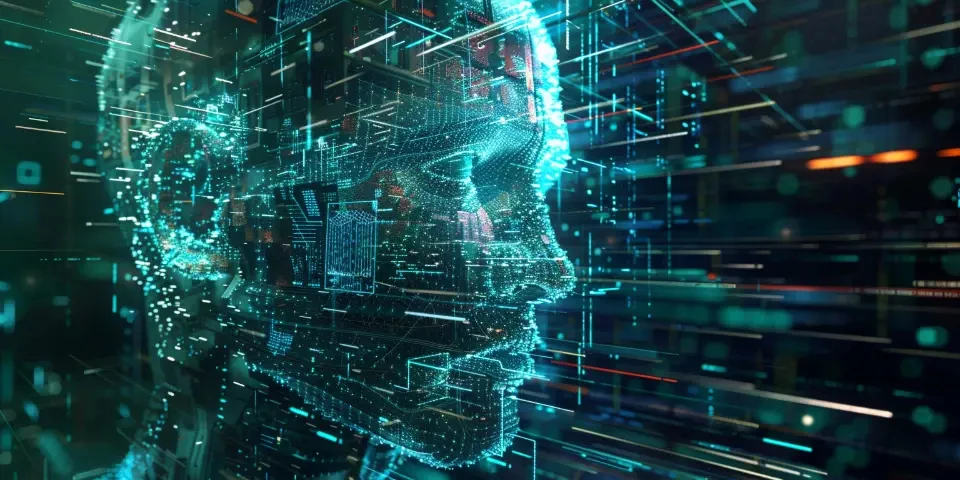AI in Education Reshaping Learning and Empowering Students
Leveraging artificial intelligence (AI) in education has revolutionized the way we learn and has empowered students to reach their full potential. This transformative technology is reshaping education by enhancing personalized learning, improving educational access, equipping teachers with valuable tools, and fostering collaboration. In this article, we will explore the various ways AI is making a significant impact in education.
Personalized Learning
AI-powered platforms are tailored to each student's individual needs, allowing for personalized learning experiences. Intelligent algorithms analyze student data, assess their strengths and weaknesses, and create customized learning paths. By adapting content, pacing, and teaching methods to suit their unique learning styles, AI assists students in maximizing their learning potential. This personalization ensures that students can progress at their own pace, leading to improved engagement and academic outcomes.

Furthermore, AI provides real-time feedback to students, helping them identify areas for improvement and suggesting targeted resources to enhance their understanding. This instant feedback loop facilitates self-assessment, encourages students to take ownership of their learning, and builds confidence by enabling them to track their progress.
Improved Educational Access
AI has the potential to bridge the educational gap by providing equal opportunities for all learners. Machine learning algorithms analyze vast amounts of data to identify learning patterns and generate insights that can inform educational decision-making. This data-driven approach enables educators to identify at-risk students, intervene early, and provide targeted interventions to prevent academic setbacks.
Additionally, AI-powered virtual tutors offer personalized assistance 24/7, making education accessible beyond the classroom. These virtual tutors adapt to each student's learning style, offer explanations and examples, and clarify concepts in real-time. By supplementing traditional teaching methods, AI ensures that all students have access to high-quality education, irrespective of their location or socioeconomic background.
Empowered Teachers
AI empowers educators by automating time-consuming administrative tasks, allowing teachers to focus on what matters most: teaching. Intelligent systems can handle grading, record-keeping, and lesson planning, freeing up valuable time for teachers to engage with students more effectively and provide personalized guidance.
Moreover, AI equips teachers with powerful tools for curriculum design and instructional strategies. By analyzing vast educational resources, AI algorithms can recommend appropriate learning materials, activities, and assessments aligned with specific learning objectives. This enables teachers to deliver targeted and engaging lessons tailored to their students' needs.
Enhanced Collaboration
AI enhances collaboration among students and educators, enabling seamless knowledge sharing and group work. Intelligent chatbots facilitate communication by answering students' questions, providing immediate assistance, and even fostering peer-to-peer collaboration. These bots can simulate interactive dialogue, offer explanations, and guide students through problem-solving processes.
Furthermore, AI-powered platforms enable seamless collaboration among teachers, allowing them to share best practices, exchange resources, and collaborate on curriculum development. This fosters a collective learning environment where educators can leverage the expertise of their peers to enhance their instructional practices.
FAQs
Q: Can AI fully replace human teachers?
A: No, AI cannot replace human teachers. While AI provides valuable support in personalized learning and administrative tasks, human interaction is vital for emotional intelligence, mentorship, and creativity.
Q: Is AI in education only accessible to privileged students?
A: No, AI in education aims to provide equal opportunities for all learners. By bridging the educational gap, AI seeks to ensure that every student, regardless of their background, can benefit from personalized learning experiences.
Q: Does AI compromise data privacy in education?
A: AI in education is designed to prioritize data privacy and security. Stricter regulations and protocols are in place to protect student data and ensure ethical use of AI technologies.
References
1. Smith, M., & Cortez, A. (2020). Artificial intelligence in education: A literature review. Computers in Human Behavior, 110, 106380.
2. Siemens, G. (2013). Learning analytics: The emergence of a discipline. American Behavioral Scientist, 57(10), 1380-1400.
3. Johnson, M. (2018). Artificial intelligence in Education: A critical look at the futurability of AI in education. TechTrends, 62(4), 358-364.
Explore your companion in WeMate